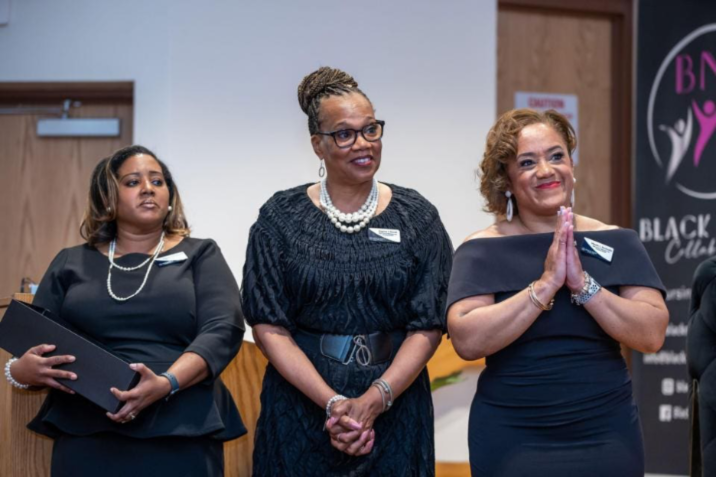
Black Registered Nurses Hosted Summit Amidst U.S. Nursing Shortage Crisis
This article originally appeared in Forbes Magazine.
The Black Nurse Collaborative (BNC), a group of dedicated registered nurses met to discuss the problems faced in the U.S. modern-day healthcare system.
For members of this uniquely all-Black healthcare professional group, their life’s work and identities intersect regularly as they navigate an industry struggling with staffing shortages along with a history of racial bias and discrimination. That’s why the inaugural State of Black Health address spoke candidly about health and workplace equity.
“Our mission as Black registered nurses is way bigger than the positions we hold at our respective hospitals or healthcare sites,” said Danielle McCamey, acute nurse practitioner and Assistant Dean at The Johns Hopkins School of Nursing.
The Black Nurse Collaborative was founded in July 2022, during a critical time in the pandemic, to bring Black nursing professionals together, promote professional growth, and address health inequities. Registered nurses Meedie Bardonille and Dr. Eugenia T. Powell took on this endeavor after seeing Black Americans’ pandemic death rate reach levels disproportionately higher than their white counterparts, due in part to systemic healthcare disparities.
“This summit was a spiritual experience, and so is our collaborative,” said Bardonille, BNC’s founding president. “With race being a leading factor for far too many of our members for forward progression and promotion, groupings like ours are essential to ensure that Black registered nurses get their voices heard so we can better serve our patients.”
The summit came just as the United States nursing shortage reached an all-time high. According to a survey released by AMN Healthcare, nearly a third of nurses nationwide planned to change careers due to the pandemic. The percentage of nurse satisfaction also dropped from the eighties to 71 percent – the lowest it’s been in the past decade.
BNC worked to highlight the plight of Black registered nurses, the majority of whom worked in a hospital setting. 58% of summit attendees reported that race was barrier to career progression, and so the summit and its outcomes were laser-focused on finding solutions that promoted the upward mobility of Black nurses and, in turn, their patients. Nurse managers, chief nursing officers, academic deans, professors of nursing, doctors in nursing, and registered nurses that provide acute care attended the summit. Nearly 70 percent of them had more than 11 years of professional experience.
“The Black Nurse Collaborative is helping turn the tide for Black nurses in the healthcare field,” said Powell, BNC’s founding vice president. “If we want to see Black health disparities decrease, Black nurses need a seat at the decision-making table.”
While the national nursing shortage has not gained much traction among either local, state or national lawmakers, the U.S. population feels its impacts. Whether it’s long wait times in emergency departments, lag times in surgery scheduling or increased hospital closures throughout the country, Black, brown, poor and vulnerable communities will be disproportionately impacted.
Learn more about the Black Nurse Summit and other initiatives the Black Nurse Collaborative has going on.
Was this article helpful?